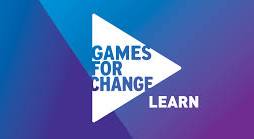Dive Brief:
- In California, legislators this week will consider proposals by early childhood education advocates to add roughly $800 million for preschool and other early childhood education programs.
- The proposals include adding 10,000 more slots in the state's preschool program for low income children, and increasing funding for quality control, in addition to raising income limits for eligibility for state programs, which would mean more children could benefit from them.
- The funding request may have a difficult time gaining traction, since California Gov. Jerry Brown's January budget proposal did not include any funding for childcare or preschool program.
Dive Insight:
Across the U.S., pre-k education is a hot topic. In 2015 alone, 924 early childhood bills were introduced in state legislatures. It's also a hot topic in California, where around 100 parents, educators, lawmakers and community activists recently attended a conference in Los Angeles dedicated to exploring a lack of access to early childcare education and its resulting impact on intergenerational poverty. One report found only 2.4% of infants and toddlers and 41.3% of preschool-aged children were able to secure a spot in licensed and expensive early childhood education centers in L.A. county, with children of color most disproportionately left out.
Yet some statewide initiatives are already trying to expand access. A study from the American Institutes for Research found California's state-mandated “transitional kindergarten” (TK) program has been largely successful. TK teachers are mandated to have bachelor’s degrees and teaching credentials, while regular preschools requisites are much more lax, sometimes requiring only a handful of college credits. Created by the California's Kindergarten Readiness Act of 2010, the TK program makes all children whose fifth birthdays fall between Sept. 2 and Dec. 2 eligible for a state-funded year of pre-K education.
In other states, pre-K is contentious, like New York's tripling of available preschool slots as the city aims to provide early education for every single NYC child. In Connecticut, a lawsuit questions whether pre-K is a component of general education.











